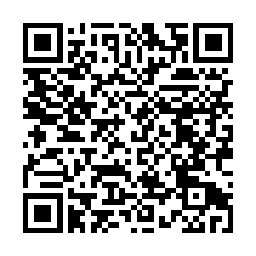Bitcoin needs to support thousands of transactions per second, maybe millions. No amount of tweaking can make the numbers jive. I argue so in this post. At the same time, some of the fundamental design choices are naïve and unnecessary. I start with this bold statement because, since I am not Mile Hearn, I do not expect anyone to read on without an initial teaser.
From SN seminal paper, bitcoin intended to have some characteristics that made it into a good currency, money, numeraire, or whatever you want to call it. Initially, it seemed that the design attained those characteristics, and indeed its phenomenal success suggests it did.
However, I think the design has not scaled well and is reaching a point where it cannot continue to grow and maintain the originally desired features.
The design assumed that the pure ‘progress’ (like Moore’s Law) would keep up or surpass the operating requirements of the btc network. Nevertheless, this is being proven unrealistic. Even if Moore’s law continues, the scaling of btc has been and needs to continue to be explosive.
To be relevant, let’s say Bitcoin needs to account for 1% of the world’s transactions. Roughly, if Visa processes 10k transactions per second, let’s say overall card transactions are ten times that and other transactions are on the same level, so there are today around two hundred thousand transactions per second. That would be 17 billion transactions per day, i.e. 2.5 transactions per person per day on the planet. This is back of the envelope, but probably not far from the right order of magnitude.
With those assumptions, Bitcoin needs a bandwidth of 2000 transactions per second (1% of two hundred thousand) just to be on the radar. And that is just 2015 rate, but it doesn’t take too much reading to see that other innovations (IOT, for instance) will add some zeros to the figure.
A naïve vision of Bitcoin as planetary (or even intergalactic) currency, then, is like the Jetsons’ view of everyday life. Cool in theory, but numerically unviable.
Again, an issue of the blockchain and its size. But there are economic and not just technical questions:
When I was a kid, they sold special “airmail” envelopes, made of lighter paper, because only critical mail was worthy of the expensive air delivery. Nowadays, all mail is airmail, even junk.
For the same reason, critical payments used to be the only handheld ‘real time’ transfers, while run of the mill transactions could take several days. Now payments are converging to real time, regardless of size, and cost is plummeting. Special high value private networks that made sense before are merging into the internet following the same pattern.
Bitcoin’s current bandwidth, however, doesn’t even match the throughput of high value networks. There are various proposals to bifurcate the rails, like sidechains, Lightning network, altcoins, etc. It seems as we are reliving a millennium of payments kludge history in just a year. In a world where Faster Payments is implemented in a few countries and private firms are marketing this service to many others however, a system that can only handle high value transfers is a weak competitor.
If I could send a little note to Nakamoto-san in 2008, I would tell (her/him/them/it?): “Think this through a little longer. Bitcoin is not ready. Your fundamental ideas are sound, the implementation still is not. In six years your heirs will be squabbling over details because the whole thing is bursting at the seams.”
Next issue: Judas, Manhattan and my great grandfather
Tip me in Bitcoin.
If you need to know what Bitcoin is go here
if you need bitcoins, go here

1DCVEgb6bf77Df7sUbTVsNStrFNBMHhRAC
 I was led by @Chris Skinner to a string of articles (this and this) regarding a bank and blockchain and finally to this fine chart from NIST. The bottom is obviously my add-on.
I was led by @Chris Skinner to a string of articles (this and this) regarding a bank and blockchain and finally to this fine chart from NIST. The bottom is obviously my add-on.


